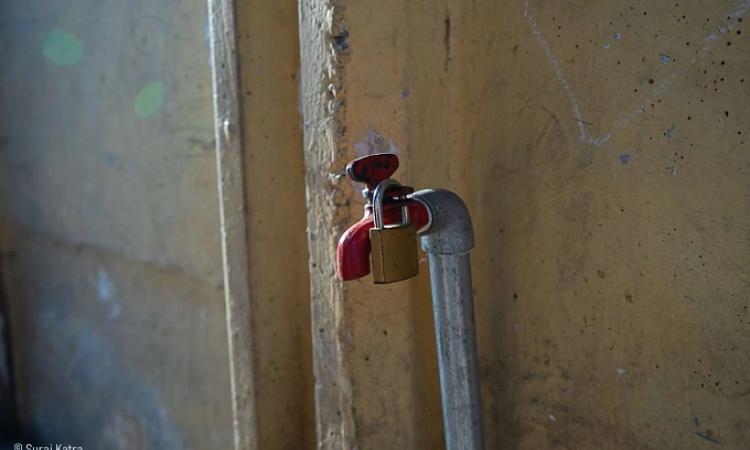
Thousands of Mumbai’s citizens are disconnected from the city’s water supply network. This photo essay reports on the impact of the poor governance of this essential resource on informal urban settlements.
The Municipal Corporation of Greater Mumbai (MCGM) maintains one of the most extensive and complex water distribution systems in the world, comprising nearly 20,000 kilometres of pipelines. Yet, the source of the water in the taps and their consumption levels, remain a mystery to most people living in the city.
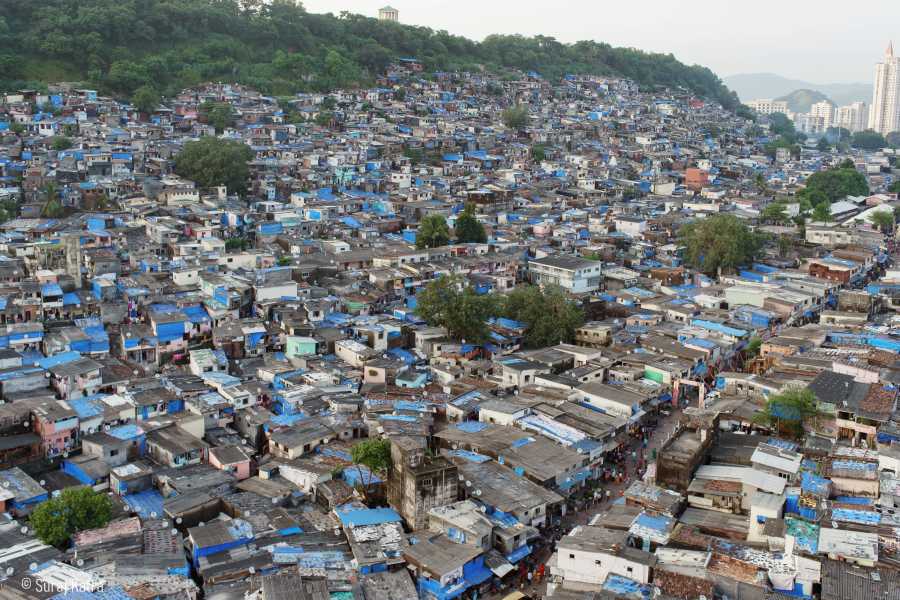
The MCGM supplies 3.8 billion litres of water daily with a tariff of INR 5 for every 1,000 litres. However, an individual in an informal settlement can receive less than 20 litres daily—which is below the minimum consumption level recommended by WHO. In several informal settlements, 95 percent of all existing households use less than 50 litres per capita per day, increasing the chances of contracting and spreading diseases.
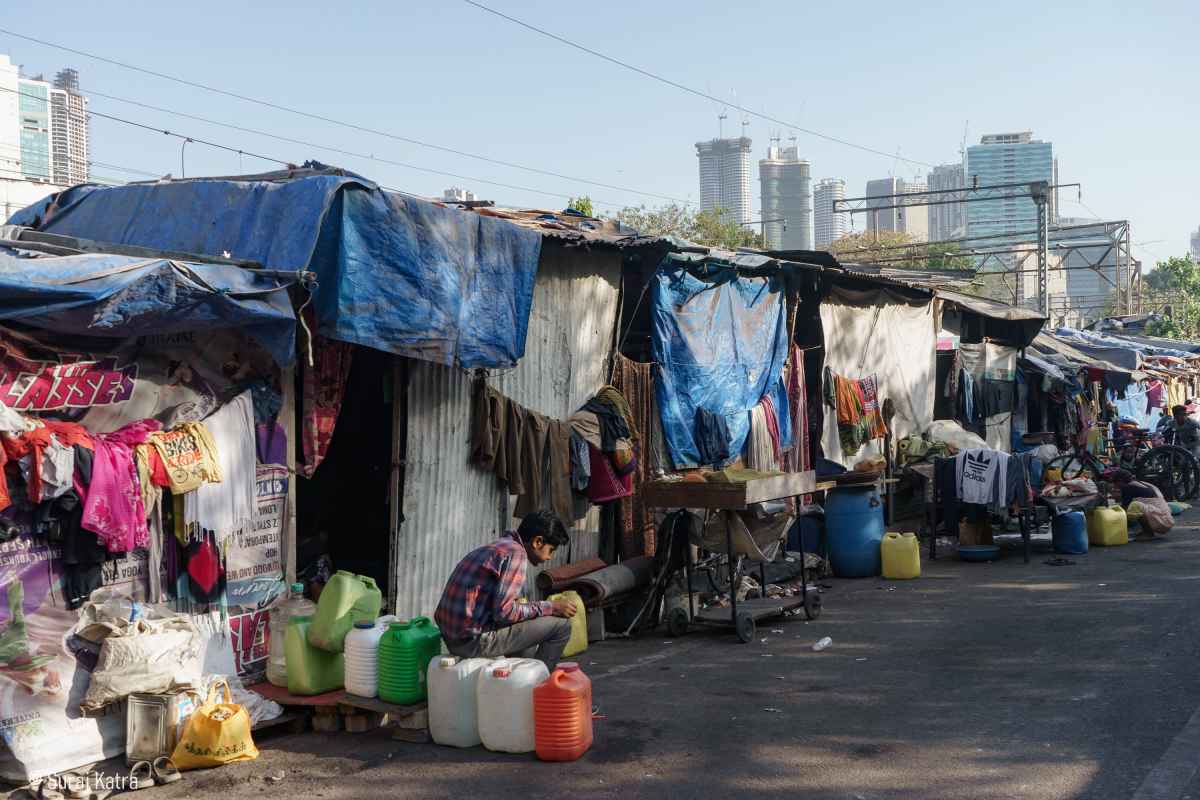
Social differences are reproduced by the accreted laws, policies, and techniques that govern water in the postcolonial city.
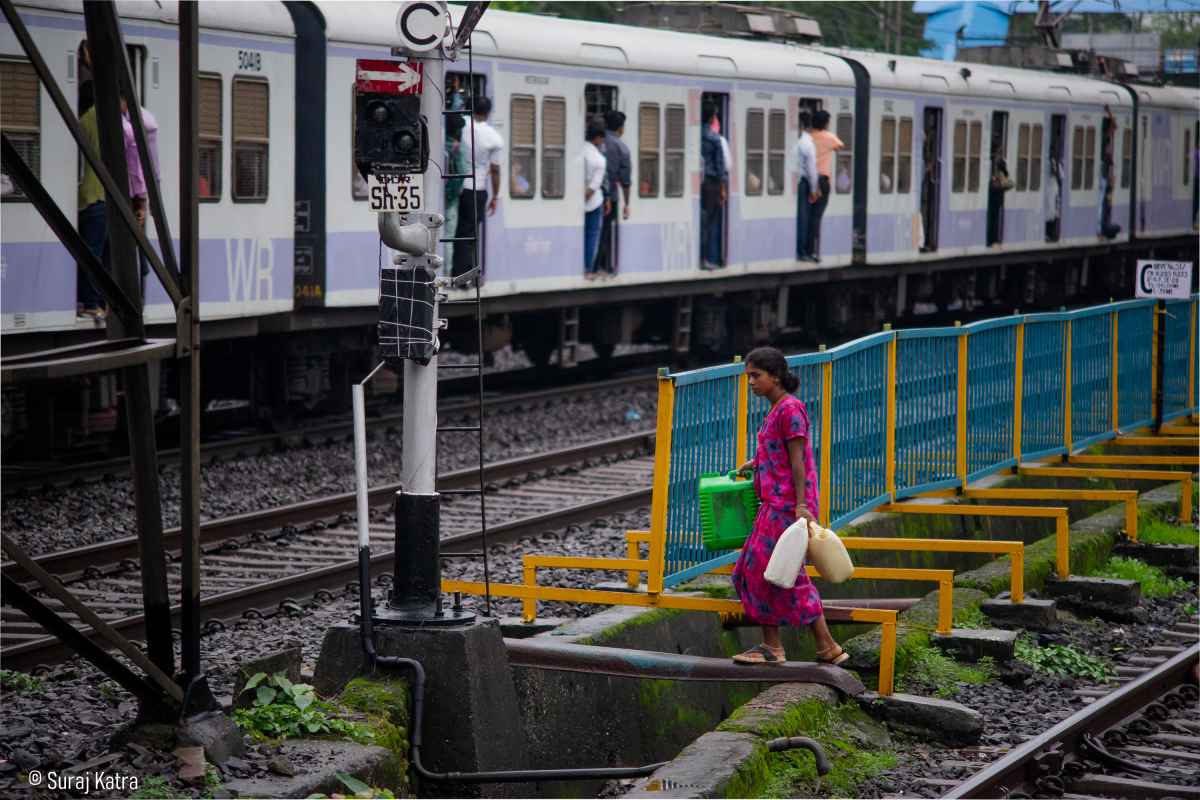
In response to a PIL filed by Pani Haq Samiti, a local right to water collective, a 2014 High Court Order promised to provide piped water to those who can prove residence in informal settlements before the year 2000. This promise, however, continues to be largely unmet.
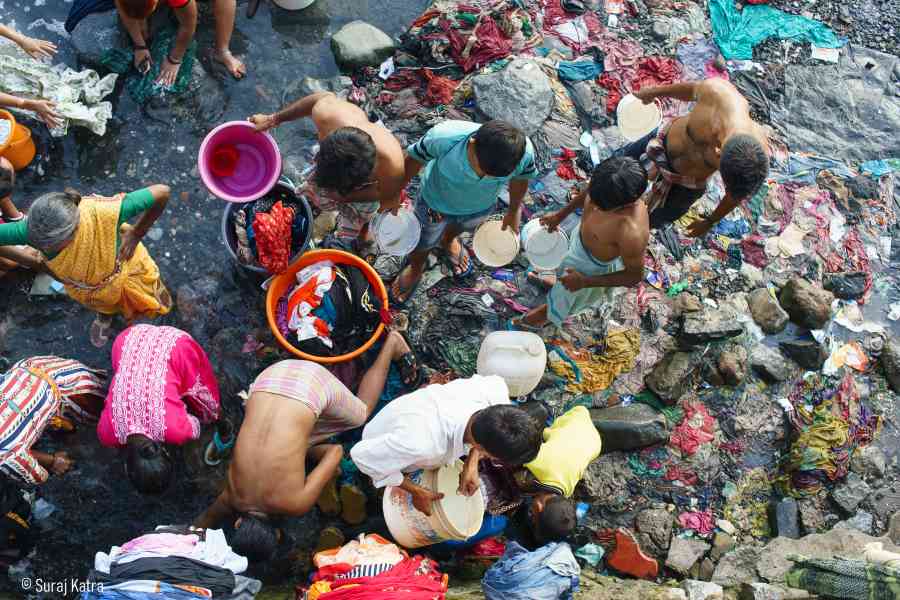
Residents of Geeta Nagar (in south Mumbai) rely on an unknown leakage outlet to wash their clothes. Roughly 27 percent of the city’s water is unaccounted for and lost to leakages, faulty meters, and unauthorised connections. The minimum amount lost monthly is approximately INR 2.5 crore.
It is common practice that water charges in residential societies are shared equally between all members. This practice makes it difficult to establish the relationship between the price paid for water and the quantity used. With over 70 percent meters not working, the billing system heavily relies on estimates.
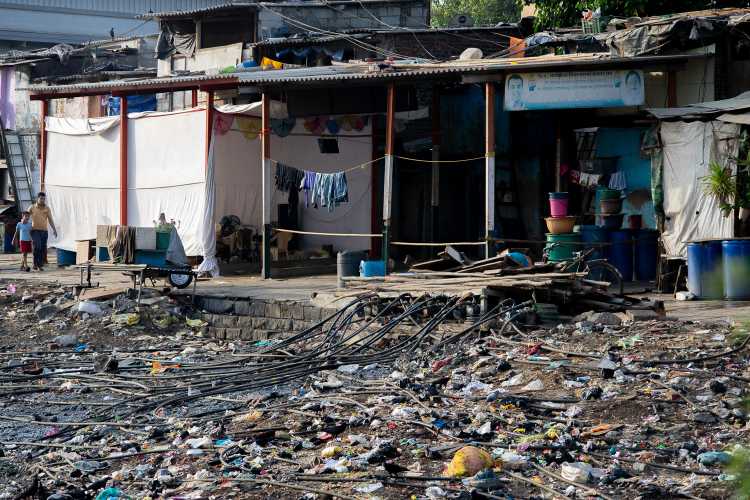
Some citizens in informal settlements end up paying 40 times more for water and have to resort to informal sources, private tankers, and the black market to obtain their water. Seen here are floating pipes set up in cooperative effort by local plumbers and authorities in an informal settlement in south Mumbai.
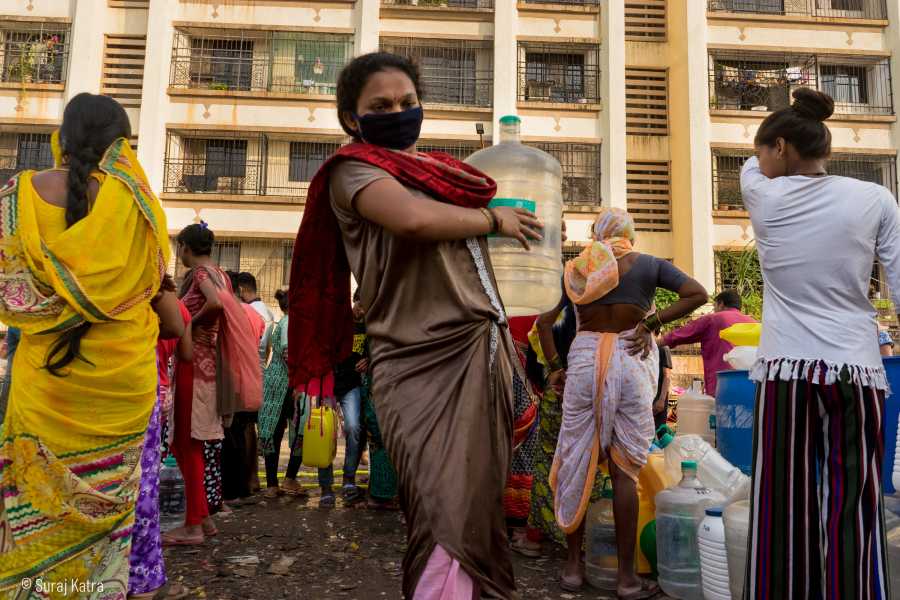
Despite living right in front of residential societies, citizens living in Siddharth Nagar (in a western suburb of Mumbai) are shunned away when they request water. During the pandemic, they had to manage with even less water since they had no savings and many would earlier procure water from their employers.
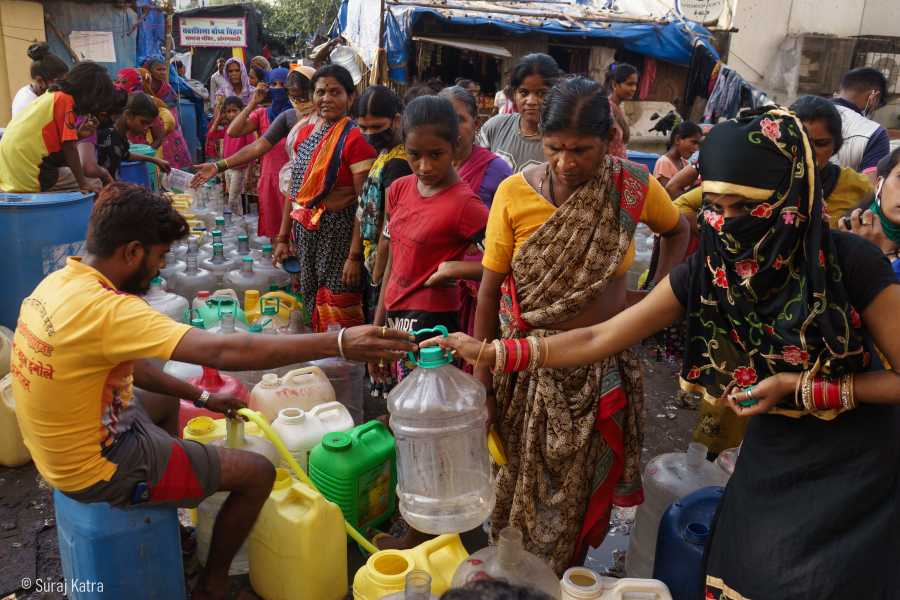
With restrictions imposed on movement during the pandemic, the MCGM arranged for water tankers in some communities. Pani Haq Samiti also filed a case in the high court on behalf of 33 informal settlements to urgently appeal for new water connections on humanitarian grounds. However, gradually as the lockdown period ended, tanker visits became unreliable in most areas.
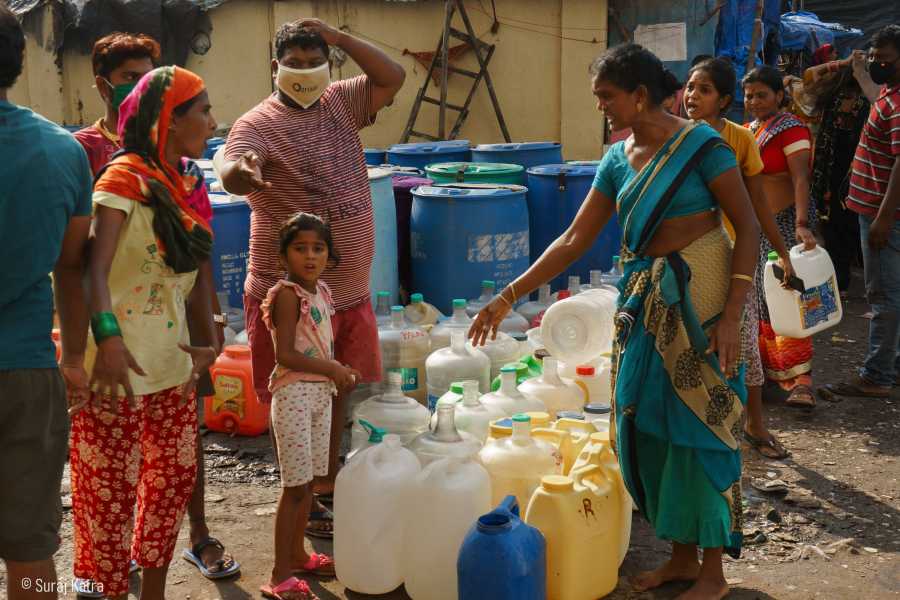
Residents stack water containers side by side, each one of them marked with their owner’s identification. As waiting time increased to follow social distancing, quarrels over the quantity of water allotted or their position in the queue occurred more frequently.
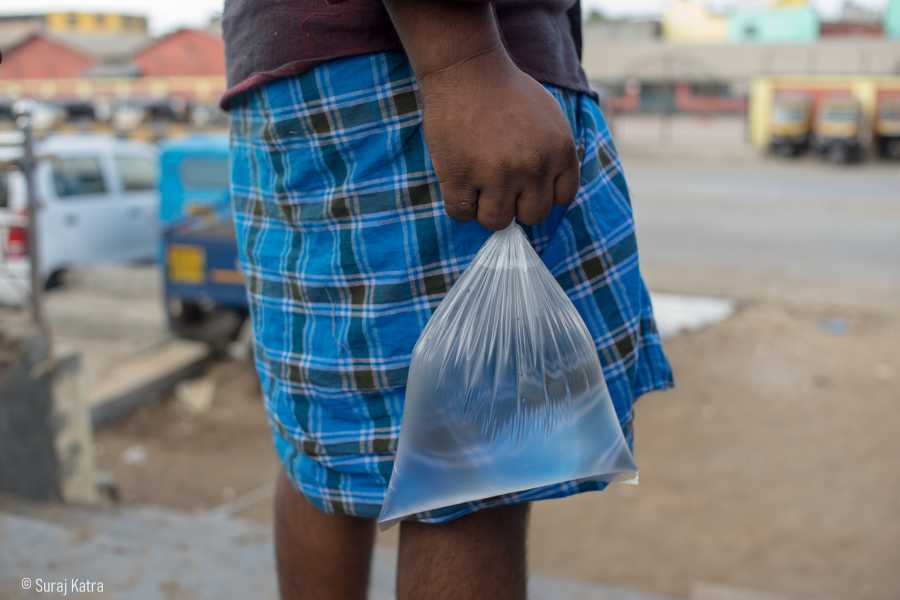
Several people living in informal settlements commonly purchase water in plastic pouches (sold at INR 2 or 3). They are especially sought during the morning by those who cannot access proper toilets.
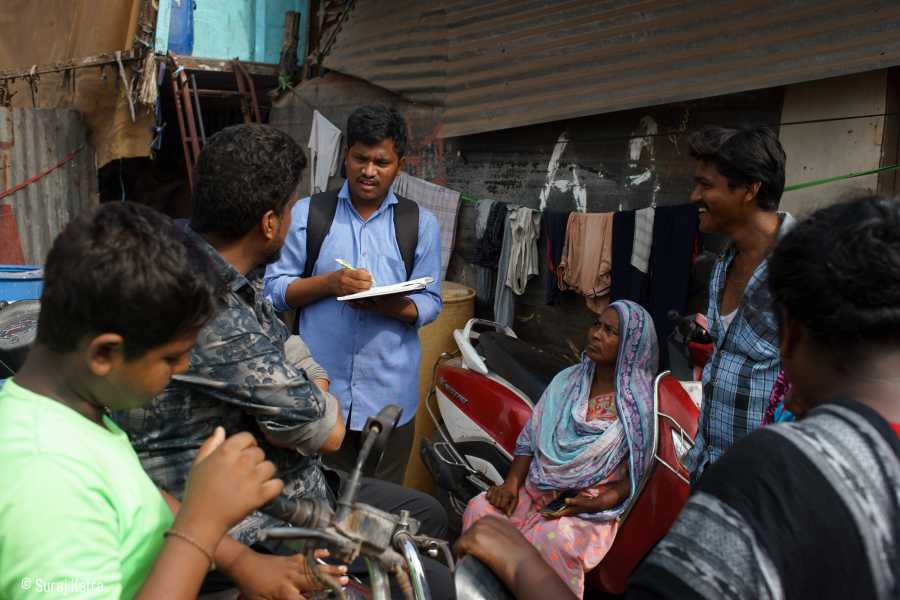
Pravin Borkar, a social worker from Pani Haq Samiti (pictured here in Kaula Bandar, south Mumbai) collects information from residents to file applications with the MCGM for new water connections. The list of paperwork demanded by the MCGM is exhaustive and includes a No Objection Certificate from the land owner, a certificate of good character by the local councillor, and proof of residence before 2000. It also requires five households to jointly apply in a single application.
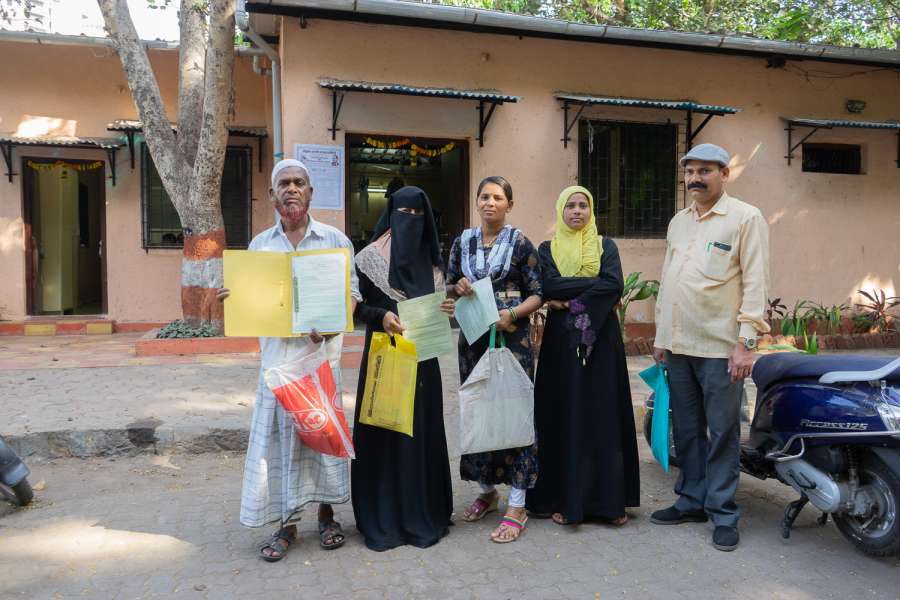
Pictured here, residents from GTB Nagar visit the local ward office to follow up on the applications they have jointly filed seven months ago for a new water connection. Several hundred applications are currently pending approval by the MCGM.
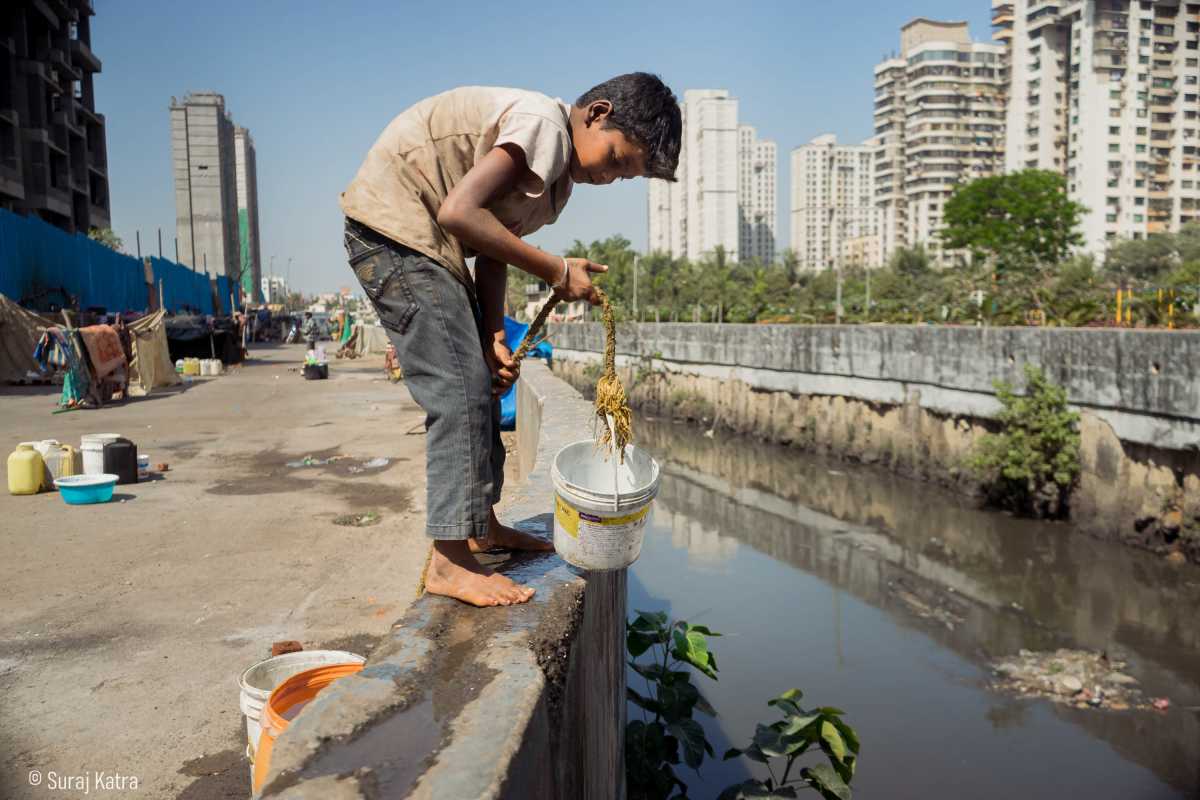
Children too have to share this burden. Akash, whose father works as sewage cleaner (in picture) had to quit school. He spends close to an hour each day refilling a water tumbler from an unknown leak flowing into the Eksar Nullah in Borivali.
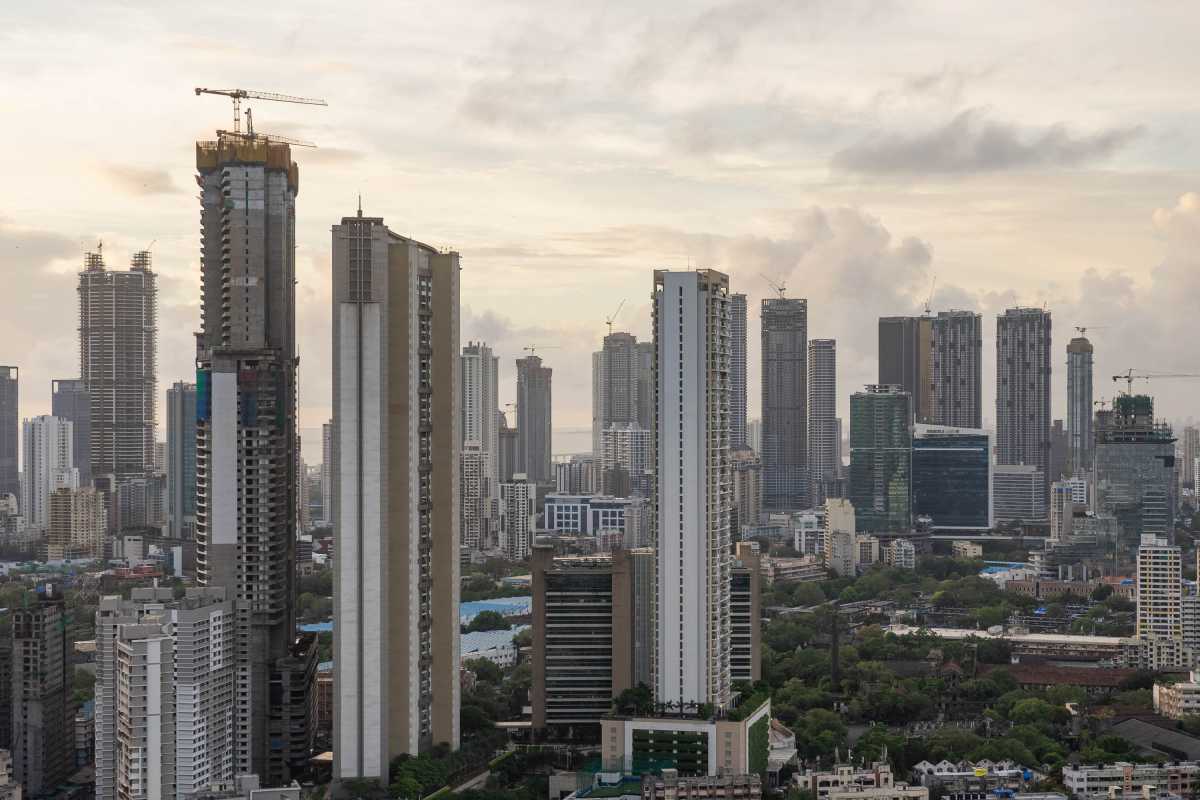
With unlimited water in every room at home, can well-off citizens claim to truly understand how those who are water insecure live?
This article has been republished with permission from IDR Online. View the original here.